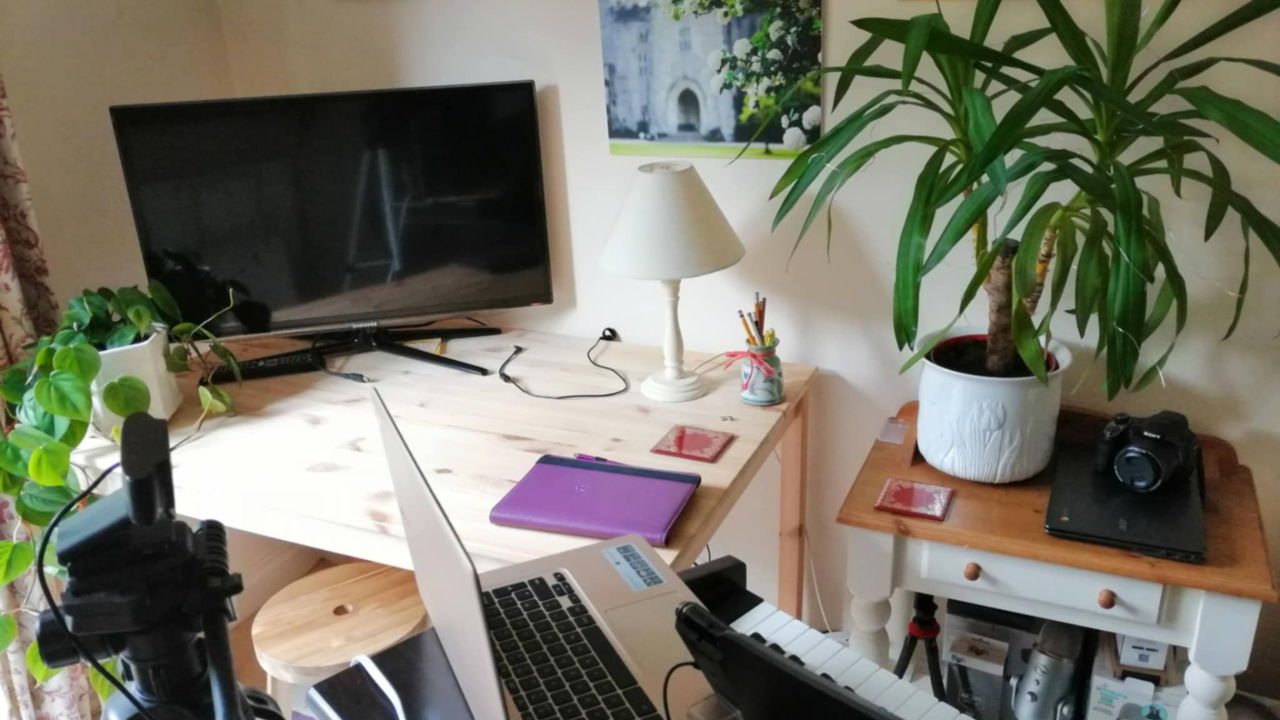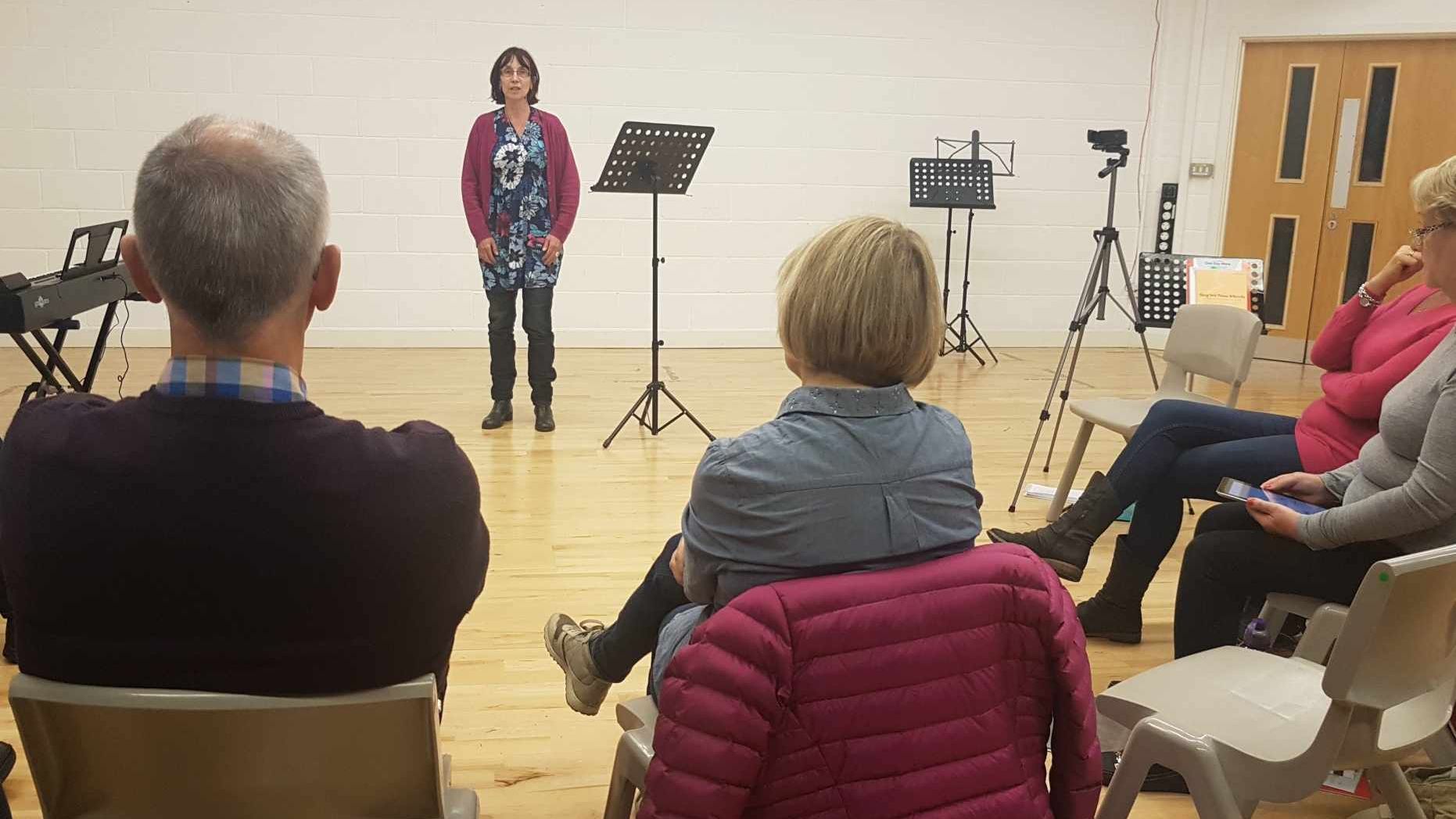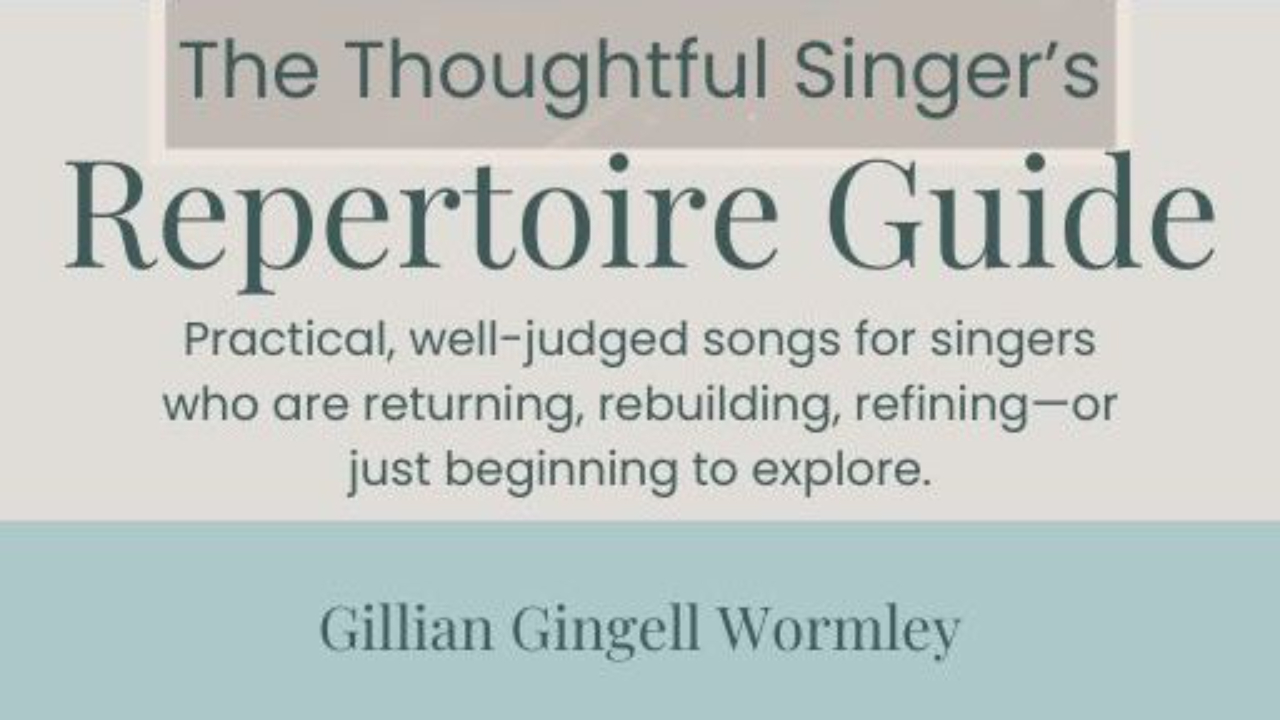What Next, Fair Singer?

The return to your singing.
When the Voice Calls You Back.
Sometimes we sing again not because we feel ready, but because something deeper is calling—a longing to reconnect with the voice.
There’s a quiet moment—often unexpected—when the pull toward singing resurfaces. It might arrive while clearing out a cupboard or listening absentmindedly to a recording. You find yourself humming again, or wondering where your sheet music went, or trying to remember how that phrase used to feel when it soared from your throat without thought or fear. Sometimes, that’s all it takes. A musical fragment, a conversation, a memory—and you realise you miss it.
Perhaps singing was once a regular joy for you. Or maybe you’d only just begun before life swept you elsewhere. Many returning adult singers find the idea of coming back both exciting and daunting…Either way, the idea of returning to classical singing can feel daunting. The voice is personal. It reveals where we are, not just technically but emo...
From Voice Studio to Digital Studio: Finding connection and capability with Kajabi

When live performance stopped in March 2020, everything changed for those of us in music and the arts. We lost not just our concerts and workshops, but the collaborative energy, the sense of forward motion, and the deep nourishment of singing with others.
As a classical singing teacher, I found myself facing a dilemma shared by many creatives: how to keep our work alive — and our people connected — when the world had pressed pause. I'd already signed up for Kajabi before the pandemic, but like many, I hadn’t fully committed to using it. Back then, in-person teaching and live events were still at the centre of everything I did within my business.
But lockdown turned Kajabi into something more than a tool. It became a lifeline.
Stay connected, let’s sing.
That was the title of a blog post I shared early in 2020, when I was still figuring out how to translate everything I’d built into a space that felt stable, welcoming, and real — even through a screen.
It wasn't just about tech...
Where Music Meets Meaning: The Next Chapter in Your Singing Journey

Reflections: Love Your Voice 2025 - but what comes next?
There’s something truly special about gathering together in a space where your voice is not only heard but valued. Love Your Voice 2025 was one of those rare moments where technique, expression, and community wove together into something wonderful, something lasting. As I reflect on the weekend, I find myself thinking about what made it so memorable—not just the music, but the breakthroughs, the connections, and the clarity that singers found in their voices.
One singer described their learning process as an ever-expanding spiral—returning to familiar concepts but discovering something new and exciting each time. Another found a new sense of freedom in their repertoire, realizing there was so much more possibility than they had imagined. A third spoke about the supportive and encouraging atmosphere, and how watching others work through challenges helped reinforce key ideas in a way that made them stick.
These discoveries don’t...
Voice-Works Summer Study Weekend 2025: 8 French Greats

Voice-Works Summer Study Weekend 2025
10th–11th May
Location: Chandler's Ford, Hampshire, UK
Setting the scene
The late 19th and early 20th centuries saw an extraordinary flowering of French vocal music, with composers navigating the shifting landscapes of Romanticism, Impressionism, and Modernism. Many of these figures crossed paths, influencing one another’s work, drawing inspiration from shared literary sources, and sometimes even studying under the same teachers. Their English contemporaries—Stanford, Elgar, Vaughan Williams, and others—were similarly engaged in defining a national identity in song, yet the French approach remained distinct in its sensuality, clarity of line, and connection to poetry.
During the study weekend, we will explore the music of 8 great French composers, carefully selected for their impact on both mélodie and opera. Fauré, Debussy, and Ravel each shaped the evolution of French art song, while contemporaries like Massenet and Poulenc moved effortlessly be...
Learning to Sing Without the Pressure: Why Observation is So Valuable

The Inspiration of Observation in Singing
There’s a moment when we are drawn back towards something we love, where the thought of stepping forward feels just a touch overwhelming. Whether it’s singing, painting, or even revisiting an old hobby after years apart, the idea of diving straight in can be intimidating. And yet, in those moments of hesitation, there is an invaluable tool that often goes unnoticed: observation.
Learning Without the Pressure of Performing
Observing vocal classes isn’t simply about watching others at work. It’s a process of deep learning, offering a chance to step into the experience without the immediate pressure of performing. For those returning to singing after a break, or even for those who have been refining their technique for years, there is something profound about witnessing another singer's journey in real-time. We listen differently, we notice more, and—most importantly—we allow ourselves the space to absorb without expectation.
Why Watching Othe...
Love Your Voice 2025 for Classical Singers: application deadline approaches ...

Applications for Love Your Voice 2025 Close Saturday 1st February
What better time than now, as the year unfolds, to invest in yourself as a singer? Whether you’re an experienced soloist or someone rekindling a long-held passion, Love Your Voice 2025 offers a space to nurture your technique, spark your creativity, and connect with other singers who truly “get it.”
Love Your Voice is all about learning by doing. It’s about stepping into the room, being heard, and embracing the process of exploration. Over three immersive workshop days in March, we’ll dive into the heart of what it means to be a solo classical singer—not just technically, but emotionally and creatively. These sessions are designed to provide practical tools for real growth, paired with the joy and camaraderie that come from working alongside a small group of like-minded singers.
Here’s what you can expect from each day:
-
Day One: Embracing Creativity and Performance
...
We’ll set the tone for the weekend with a Meraki
Love Your Voice 2025: A Transformative Weekend for Classical Solo Singers

As the New Year begins, it’s a natural time for introspection and planning—a moment to pause, take stock, and envision the path ahead.
For us as singers, this season of renewal is also a chance to reconnect with the joy and artistry that make our vocal journeys so fulfilling. Singing, after all, is good for the soul. It’s an expression of creativity, a means of connecting with others, and a way to ground ourselves in something deeply personal yet universally shared. And that’s why I’m so excited to invite you to Love Your Voice 2025.

This 3-day workshop event is a cornerstone of my work within The Voice School—where singers come to grow, explore, and refine their craft. It’s not just about technique, though that’s a vital part of what we’ll work on. It’s about nurturing the whole singer: embracing the creativity, individuality, and sheer joy that brought you to music in the first place. This ethos is at the heart of everything I do, from my teaching to the events I create, and Love...
Voice-Works Spring Study Weekend for Classical Singers

Prepare to Find Your Voice: Voice-works Spring Study Weekend 2025
Dates: January 25–26, 2025
Location: The Jubilee Hall, Winsham, Somerset, UK.
The Spring Study Weekend is your chance to explore repertoire spanning opera, oratorio, and song from 1600–1850 in an inspiring and supportive setting. Whether you’re a seasoned soloist or rediscovering your voice, this event is crafted to help you refine your skills and deepen your curiosity and understanding of classical vocal performance.
What to Expect Over the Weekend
This immersive two-day event will combine individual coaching, group sessions, and opportunities for discussion and collaboration. The focus is on developing your technical foundation, interpretive insight, and confidence as a singer.

You'll bring three prepared pieces that span the genres of opera, oratorio, and song, allowing for a rich and varied exploration of style and technique. Don’t worry about polished perfection – the emphasis is on secure preparation and a wi...
Sing Joyfully 2024 Reflection: Singing for a Cause, Singing for Joy!

We did it!
Sing Joyfully 2024 was a feel-good success, with Day One dedicated to fundraising for Worldwide Cancer Research, we pretty much sang all day! Rehearsing/preparing during the morning and then in the afternoon, after lunch, we set the clock and for 2+ hours we kept a continuous flow of music going, delivering a total of 24 sung pieces - ensembles, trios, duets, rounds with a few off the cuff solos thrown in! It was a thoroughly enjoyable day - lots of fun and wonderful well-being endorphins!
Reuniting in Harmony
The day was filled with music for those we’ve loved and lost, those currently fighting, and those who’ve come through their battles. My own parents’ support for my music is never far from my thoughts, and it was inspiring to remember them and other loved ones in this way.
It was a full day of music and connection. There’s something extraordinary about sharing the experience of music in this way, and it created a day full of warmth, laughter, and that unbeatable f...
Sing for the Soul: Elevate Your Well-Being with Ensemble Singing

Sing Joyfully! Join me for a Well-Being-Focused Weekend
Reconnect: The Joy of Singing Together and Well-Being
Are you a singer searching for immersive, joyful vocal experiences that uplift the soul? I warmly invite you to join me for the 2024 "Sing Joyfully!" workshop weekend. This two-day event is designed for singers of all levels who are eager to share in the joy and camaraderie that music brings, creating not only harmony but also a deep sense of well-being.
With over 35 years as a classically trained singer, my mission has always been to help others connect with their voice in a way that goes beyond technique. Singing is more than an art - it’s a form of personal expression that taps into the essence of who we are. We’ll experience the collective vibration of our voices, harmonizing in a way that lifts the spirit and boosts emotional and mental well-being.
The Power of Singing Together
Singing with others brings us into the present moment, raising our vibration and fostering ...







